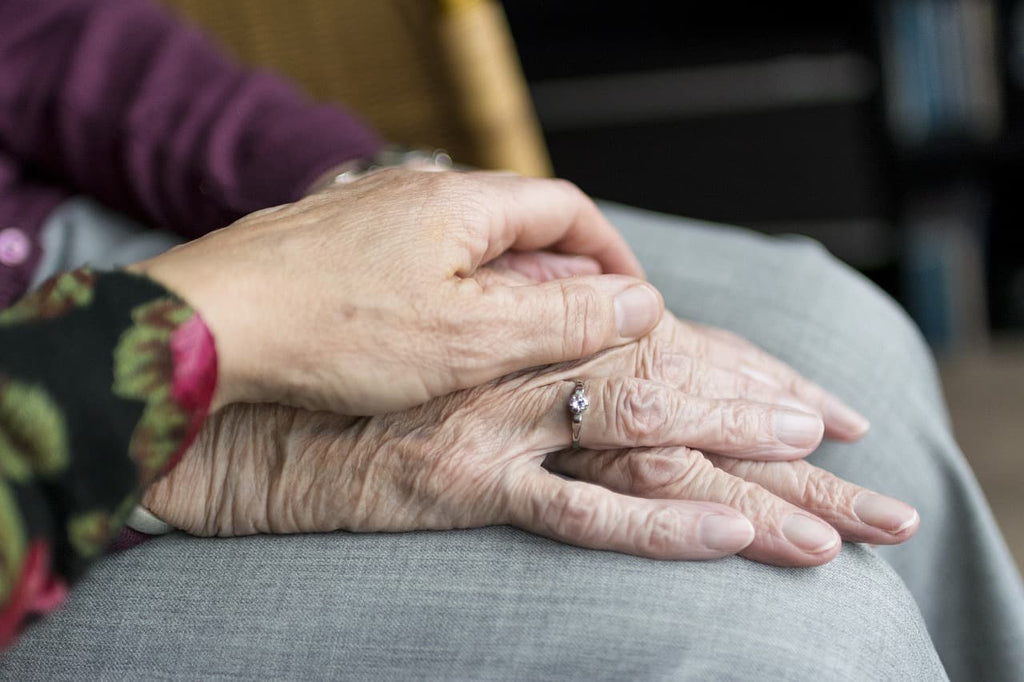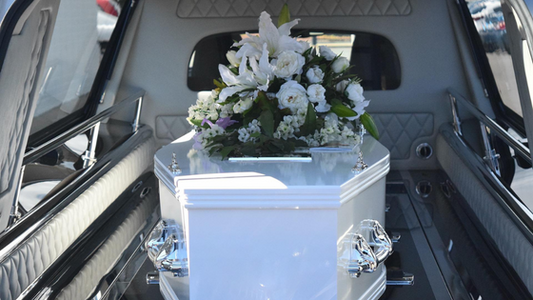Losing a loved one is a heart-wrenching experience that brings sadness and grief. Planning a compassionate funeral service can provide solace and comfort to both the bereaved and the departed. But what exactly does it mean to plan a compassionate funeral? And how can you ensure that the funeral arrangements genuinely reflect the life and values of your loved one?
In this guide, we will look into the essentials of compassionate funeral planning, exploring the significance of funeral services and the role of funeral directors. We will also discuss the importance of personalization in creating a meaningful farewell and provide insights into selecting the appropriate funeral service and burial options.
Essentials of Compassionate Funeral Planning
Planning a funeral involves much more than the logistics of organizing an event. It is a compassionate endeavour that aims to provide solace and support to those who are grieving the loss of a loved one.
The Profound Significance of Funeral Services
Funeral services hold a deeply meaningful place in our society. They provide an opportunity for family and friends to come together, express emotions, and honor the life of the departed. Funerals serve as a platform for the bereaved to find comfort, closure, and a sense of community during a difficult time.
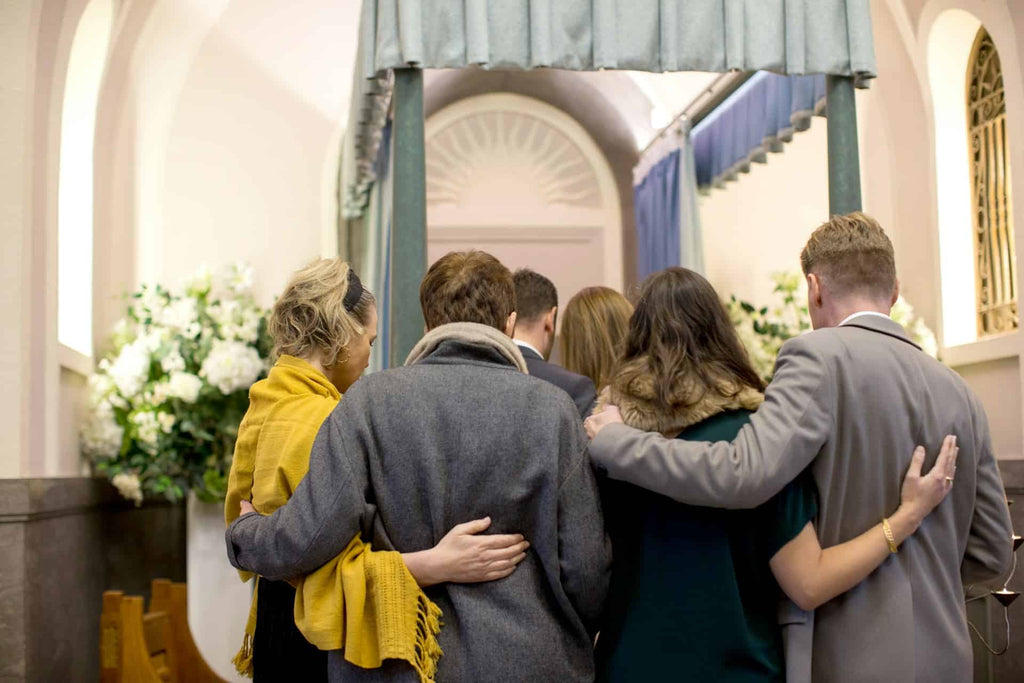
By gathering loved ones, funeral services allow for the sharing of memories and stories that celebrate the life that was lived. They provide a space for reflection, where individuals can acknowledge their grief, find support from others who share their loss, and begin the healing process.
Furthermore, funeral services enable the recognition of the deceased as an individual who made a significant impact on the lives of those around them. They offer a chance to pay homage to their accomplishments, values, and contributions, ensuring that their legacy lives on.
Expertise and Sensitivity: The Role of Funeral Directors
Funeral directors play a crucial role in guiding bereaved families through the funeral planning process with expertise and sensitivity. They provide invaluable support and assistance, helping to alleviate the burden during this challenging time.
Funeral directors possess a deep understanding of funeral traditions, customs, and legal requirements. They are skilled in coordinating various aspects of a funeral service, such as obtaining necessary permits, arranging transportation, and handling administrative tasks. Their expertise ensures that the funeral service is conducted smoothly and in accordance with the wishes of the family and the deceased.
Additionally, funeral directors offer families compassionate guidance and emotional support throughout the planning process. They listen attentively to the needs and preferences of the bereaved, providing advice and recommendations to create a personalized and meaningful farewell. Their sensitivity and empathy help create an atmosphere of reassurance and care for grieving families.
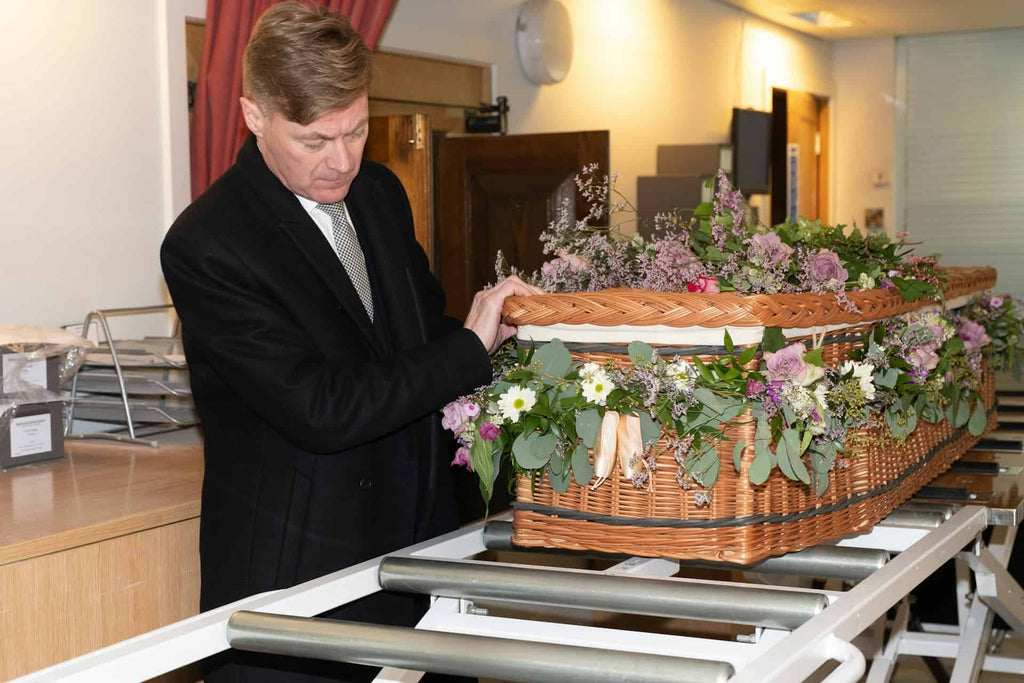
The Importance of Personalization in Funeral Arrangements
Personalization is fundamental when planning funeral arrangements. It allows the funeral service to reflect the deceased's life and values, creating a unique and meaningful experience for the mourners.
By incorporating personal touches such as favorite hobbies, music, or passages, a funeral service can be tailored to honor the life of the departed in a personalized way. These elements help create a deep connection between the mourners and the memories associated with the departed.
The significance of personalization in funeral arrangements cannot be overstated. It brings comfort and solace to those grieving, as they witness a tribute that reflects the true essence of their loved one.
There are various ways to incorporate personal touches into funeral arrangements. Here are a few tips:
- Choose music or songs that were meaningful to the deceased.
- Create a memory table or display that showcases cherished photographs, possessions, or mementos.
- Include readings or passages from books, poems, or religious texts that were important to the departed.
- Incorporate elements of the departed's favorite hobbies or interests through decorations or themed tributes.
- Encourage mourners to share personal stories and memories during the service, which will make the experience more intimate and meaningful.
Incorporating personalization into funeral arrangements helps create a beautiful and meaningful farewell that honors the life lived. It allows mourners to connect with their emotions, find solace in shared memories, and begin the healing process.
Reflecting on the Deceased's Life and Values
Funeral planning goes beyond logistical considerations; it provides an opportunity to reflect on the departed loved one's life, values, and individuality. Honoring their personal hobbies and passions is a meaningful way to celebrate their unique identity and pay tribute to the memories and joy they brought into the world.
One way to incorporate their personal hobbies and passions is by infusing thematic elements into the funeral service. For instance, if the deceased was an avid gardener, incorporating floral arrangements or using nature-inspired decorations can serve as a beautiful homage to their love for plants and the outdoors. By incorporating these elements, mourners are reminded of the legacy and impact the departed had in their chosen pursuits.
Additionally, cultural and religious practices must be considered during the funeral planning process. These practices help to respect the traditions and beliefs of both the departed and the mourners. For example, if the deceased held strong religious beliefs, incorporating religious rituals, readings, or music into the service can bring comfort and spiritual connection to those in attendance.
By embracing and honoring the departed's personal hobbies and passions and incorporating cultural and religious practices, funeral services can become a profound and authentic celebration of their lives. They provide an opportunity for loved ones to share and cherish memories while finding solace in the shared values and traditions that encompassed the departed's life.
Choosing the Appropriate Funeral Service and Burial Options
Between Burial and Cremation Services
One of the most important decisions when planning a funeral is whether to opt for a burial or cremation service. Each option offers unique considerations and carries its own significance.
Traditional burial services involve interring the body in a casket in a dedicated resting place such as a cemetery. This option allows for visitation, graveside services, and the opportunity for loved ones to have a physical space to visit and pay respects for years to come.
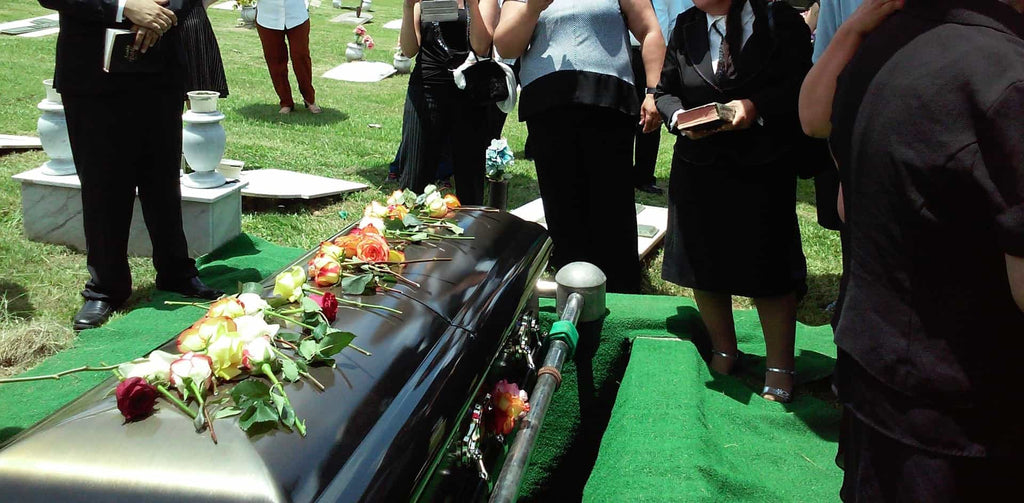
Cremation services, on the other hand, involve the process of reducing the body to ashes. This option offers more flexibility in terms of memorialization. The ashes can be stored in an urn, scattered at a meaningful location, or even transformed into memorial objects.
When deciding between burial and cremation, the wishes of the deceased, personal beliefs, cultural traditions, and financial considerations must be considered. It is also advisable to consult with a funeral director who can provide guidance and support in making this decision.
Selecting a Venue That Resonates
Once the choice between burial and cremation has been made, selecting an appropriate venue for the funeral service is the next step. The venue plays a crucial role in setting the tone and creating a meaningful atmosphere for the farewell.
Many options are available for hosting a funeral service, including funeral homes, religious institutions, community centers, and even outdoor settings. The choice of venue should reflect the preferences and values of the deceased and their loved ones.
Sometimes, venue selection is influenced by religious or cultural traditions. For example, a church may be chosen for a traditional religious service or a natural setting may be selected for a more intimate and eco-friendly ceremony.
It is important to consider the venue's accessibility for mourners, its capacity to accommodate the expected attendees, and any special requirements or arrangements that may be necessary. Often, funeral directors can assist in identifying suitable venues and coordinating the logistics of the service.
Funeral Planning

Funeral planning involves a series of steps and considerations to ensure a meaningful and well-organized funeral service. To help you navigate through this process, here is a comprehensive overview of the funeral planning process, along with a checklist to guide you through each essential aspect of arranging a funeral service.
- Determine the type of funeral service: Decide whether you would like to have a traditional funeral service, a memorial service, or a celebration of life ceremony. Consider the preferences and wishes of the deceased and the cultural or religious practices that may be involved.
- Choose a funeral home or funeral director: Select a reputable funeral home or funeral director who can assist you throughout the planning process. They will provide guidance, handle necessary arrangements, and ensure that all legal requirements are met.
- Arrange transportation: Determine how the deceased will be transported, whether it's to the funeral home, the cemetery, or another location. Coordinate with the funeral director to make the necessary arrangements.
- Decide on burial or cremation: Consider whether the deceased preferred burial or cremation. If you choose burial, select a cemetery and decide on the type of burial plot or mausoleum. If you choose cremation, determine what will be done with the cremated remains, such as scattering, interment, or keeping them in an urn.
- Select a venue: Choose a location for the funeral service, such as a place of worship, a funeral home chapel, or another meaningful setting. Ensure that the venue can accommodate the expected number of attendees and has the necessary facilities.
- Plan the order of service: Determine the sequence of events for the funeral service, including music, readings, prayers, eulogies, and any other special tributes or rituals that you would like to include.
- Consider personalization: Consider ways to personalize the funeral service to reflect the deceased's life and interests. This can include incorporating their favorite music, displaying photographs or mementos, or sharing stories and memories during the eulogy.
- Notify family and friends: Inform family members, close friends, and other relevant individuals about the date, time, and location of the funeral service. Consider sending formal invitations or using alternative communication methods, such as email or phone calls.
- Arrange for reception or gathering: If you plan to host a reception or gathering after the funeral service, make arrangements for the venue, catering, and any other necessary details. This provides an opportunity for mourners to support each other, share memories, and offer condolences.
- Consider legal and financial matters: Address any legal and financial matters related to the deceased's estate, such as wills, insurance policies, and outstanding debts. Consult with an attorney or financial advisor, if necessary, to ensure that all necessary steps are taken.
Celebrating Lives: Crafting Meaningful Eulogies and Tributes
Crafting meaningful eulogies and tributes is a powerful way to honor and celebrate the deceased's life. These heartfelt speeches provide comfort and solace to the mourners while capturing the essence of the person being remembered. Eulogies allow family members, friends, and loved ones to reflect on cherished memories, share anecdotes, and express their deepest emotions.
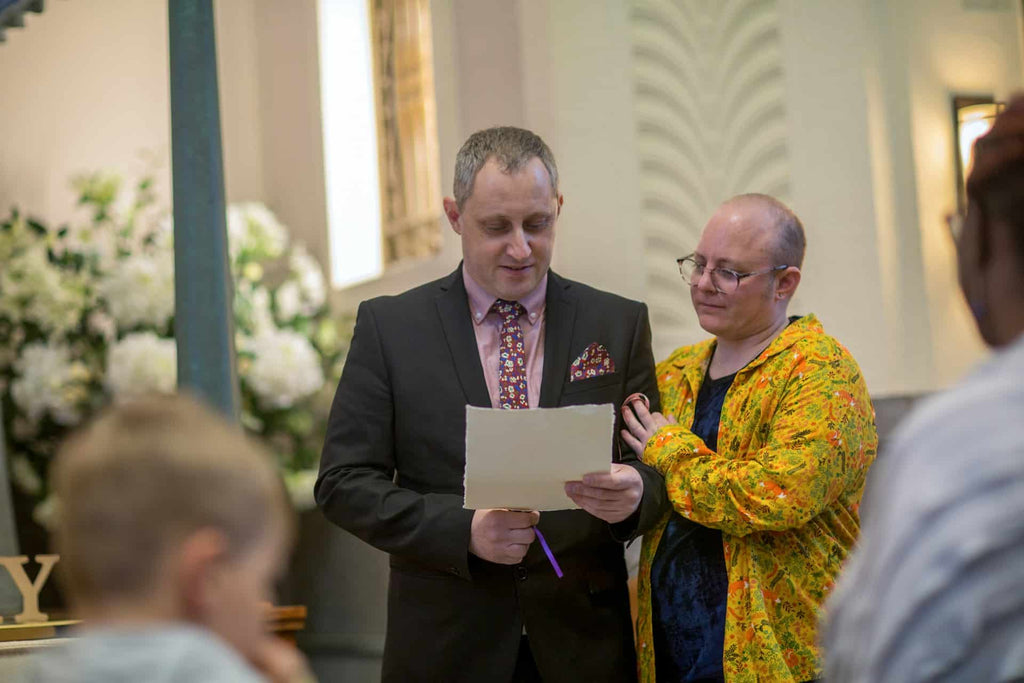
The Cathartic Power of Eulogies
Eulogies have a cathartic effect, helping mourners process their grief and find closure. As the speaker reminisces about the life lived, listeners are taken on an emotional journey filled with laughter, tears, and moments of profound connection. These speeches provide an opportunity to not only celebrate the achievements and admirable qualities of the deceased but also acknowledge their imperfections and human experiences. By sharing stories and memories, eulogies create a lasting tribute that preserves the essence of the departed in the hearts and minds of those present.
Memories Captured Through Visuals and Auditory Elements
In addition to eulogies, visual and auditory elements play a significant role in funeral services. These elements allow for a multi-sensory experience that enhances the reminiscing and honoring process. Slideshows featuring photos and videos of the deceased bring cherished memories to life, evoking strong emotions and fostering a sense of connection. Favorite songs or pieces of music can evoke powerful emotions and create a deeply personal atmosphere.
By incorporating visual and auditory elements in funerals, mourners are able to engage with their senses, immersing themselves in the memories and experiences shared. These elements elicit emotions and provide comfort and healing during the grieving process.
Engaging Mourners: Participation and Memorial Service Planning
Engaging mourners in funeral services is a meaningful way to help them cope with the loss and find solace in the support of others. Encouraging mourner engagement creates a sense of unity and provides a platform for sharing memories, expressing emotions, and honoring the life of the departed.
Memorial service planning offers various opportunities for mourner participation, allowing them to contribute to the overall experience and create a personalized tribute. Here are some ways to involve mourners in the planning process:
- Shared Prayers: Include moments of prayer or meditation during the service where mourners can reflect and find comfort in collective spirituality.
- Communal Pledges: Create an opportunity for mourners to make pledges or commitments in honor of the deceased. This can be a powerful way to inspire positive action and keep the memory of the departed alive.
- Inclusive Activities: Incorporate interactive activities allowing mourners to participate actively in the memorial service. This can include sharing stories, displaying personal mementos, or engaging in symbolic rituals that hold personal significance.
Mourner engagement not only provides comfort and support during the funeral service but also helps facilitate the mourning process and fosters a sense of closure. By inviting mourners to actively participate, we create an atmosphere where grief is shared, memories are cherished, and the legacy of the departed lives on.
Considerations for Pre-Planning Funeral Services
Pre-planning funeral services is an essential step in ensuring a smooth and compassionate farewell for both the deceased and their loved ones. By making arrangements in advance, families can alleviate the emotional stress that often accompanies the loss of a loved one. In this section, we will explore the importance of pre-planning and the benefits it offers, including reducing the burden on family members and facilitating informed decision-making.
Reducing Emotional Stress Through Pre-Planning
During times of grief, the responsibility of planning a funeral can be overwhelming. By pre-planning funeral services, individuals can alleviate emotional stress for their family members, who can then focus on grieving and finding comfort. Pre-planning allows mourners to decide the type of service, burial options, and other important details in advance, providing a sense of relief knowing that their wishes will be honored.
Making Informed Decisions in Advance
Pre-planning funeral services enables individuals to make informed decisions about their end-of-life arrangements. Individuals can ensure that their funeral service reflects their values, beliefs, and desires by considering their preferences and discussing them with a trusted funeral director. This proactive approach allows for careful consideration and research, resulting in a personalized and meaningful farewell that truly represents their life.
Pre-planning funeral services is a valuable gift that individuals can leave for their loved ones. By reducing emotional stress and facilitating informed decision-making, pre-planning allows families to focus on the healing process without the added strain of organizing a funeral. Whether you're considering pre-planning for yourself or assisting a loved one, taking this step can ensure that the final farewell is a reflection of a life well-lived.
Navigating Funeral Costs With Compassion and Care

Funeral costs can be a significant consideration in funeral planning. Understanding funeral service expenses and engaging in financial planning for end-of-life decisions is crucial for ensuring a compassionate farewell without undue financial burden. By exploring affordable options and budgeting wisely, mourners can honor their loved ones with dignity and care.
Understanding Funeral Service Expenses
Funeral service expenses encompass various aspects, and it is essential to have a comprehensive understanding of the breakdown of costs. These expenses typically include:
- Funeral director fees: The professional services provided by funeral directors, including transportation, handling legal documentation, and coordinating funeral arrangements.
- Embalming and preparation: The costs associated with preparing the body for visitation and burial, including embalming, dressing, and cosmetology services.
- Casket or urn expenses: The price of the casket or urn chosen for the deceased, considering different materials, designs, and customization options.
- Cemetery or cremation expenses: The fees associated with burial plot, grave opening and closing, or cremation services, including transportation and storage of ashes.
- Funeral service and ceremony costs: The expenses related to organizing the funeral service, including venue rental, floral arrangements, memorial programs, clergy or celebrant honorariums, and catering.
Financial Planning for End-of-Life Decisions
Considering the financial implications of end-of-life decisions is an integral part of compassionate funeral planning. To ensure financial preparedness, mourners can take the following steps:
- Research and compare funeral service providers: Exploring different funeral directors and understanding their pricing structures can help find compassionate funeral pricing that suits the needs and budget of the family.
- Create a budget: Determining a budget and prioritizing essential expenses will guide mourners in making informed decisions while considering the financial aspect of funeral planning.
- Consider pre-paid funeral plans or funeral insurance: Pre-planning and pre-paying for funeral services or investing in funeral insurance can help alleviate financial burdens in the future.
- Seek financial assistance if needed: Exploring support options such as government programs, charitable organizations, or crowdfunding can provide financial relief for families facing difficulties in covering funeral costs.
By addressing funeral costs with compassion and care, mourners can create a meaningful and dignified tribute to their loved ones without compromising their financial well-being.
Observing Funeral Etiquette with Grace and Respect
Observing proper funeral etiquette is a crucial way to show respect and support for both the mourners and the deceased. Funeral services are solemn occasions that require sensitivity and decorum. By following funeral etiquette guidelines, we can create a peaceful and comforting environment for everyone in attendance.
When attending a funeral service, it is important to be mindful of the following:
- Dress Code: Dressing appropriately for a funeral is a sign of respect. Opt for formal or semi-formal attire in dark and subdued colors. Avoid wearing bright or flashy clothing that may draw attention away from the somber atmosphere.
- Expressions of Condolences: Offer your condolences to the bereaved family members and friends. Express your sympathy with heartfelt words, a gentle touch, or a genuine embrace. Listen attentively and provide comfort when needed.
- Showing Respect: Maintain a respectful demeanor throughout the service. Keep noise to a minimum, refrain from using electronic devices, and focus on the solemnity of the occasion. Follow the instructions and directions given by the funeral service personnel.
- Proper Behavior: Be mindful of your actions and words. Avoid engaging in conversations that are unrelated to the purpose of the gathering. Treat others with kindness, sensitivity, and empathy.
- Paying Respect: If there are specific religious or cultural customs observed during the funeral, familiarize yourself with them beforehand. Respect and participate in these customs as appropriate.
- Offering Support: Support the bereaved by offering practical assistance, such as running errands, providing meals, or arranging transportation. Attend post-funeral gatherings, if invited, to extend your support beyond the service.
By observing proper funeral etiquette, we can show our respect and consideration for others during a time of grief and loss. Let us come together with grace and empathy to honor the memory of the departed and provide solace to those who mourn.
Conclusion
Embracing the journey of grief is a deeply personal and challenging process. However, it is essential to remember that you are not alone. The support of a compassionate community can provide comfort, solace, and a sense of belonging during this difficult time. Whether it's family, friends, or support groups, reach out and lean on the love and understanding of those around you. They can walk alongside you, offering a listening ear, a shoulder to cry on, and a source of strength as you navigate your way through the grieving process.
Compassionate funeral planning is more than just arranging a service; it is an opportunity to leave a lasting legacy of love for the deceased. By personalizing the funeral service, incorporating the meaningful elements that reflect their life and values, you can honor their memory in a profound and meaningful way. From heartfelt eulogies to capturing cherished memories through visuals and auditory elements, let the service speak to their uniqueness and the impact they had on the lives of others.
To all those who are currently navigating the funeral planning process, remember that each decision you make is an expression of love and respect for your loved one. It is a chance to create a farewell that truly reflects their individuality and celebrates their life. Trust in the guidance of compassionate funeral directors, who will support you every step of the way.
In conclusion, as you embark on this journey of grief, know that you are not alone. Embrace the support of a compassionate community, hold onto the memories of your loved one, and take solace in the knowledge that you have honored their legacy of love through compassionate funeral planning. May you find comfort, healing, and strength as you navigate the days ahead.
